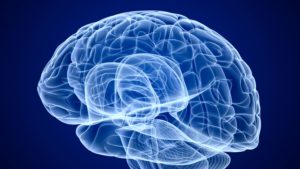 You’ve heard of Serotonin from medical ads – it’s one of the major mood neurotransmitters in our brains. When serotonin levels are low, we’re more depressed, and when they’re high, we’re happier.
What is Serotonin’s job? It regulates signal intensity; like a volume control on a stereo: serotonin changes how efficiently neurons communicate with each other, making other signals louder or softer. Most importantly Serotonin accompanies other transmitters; changing a neuron’s response to that particular signal, because of this, its used by all kinds of nerve cells all over the body. Serotonin levels can dramatically alter our behavior. High levels can lead to sedation, and low levels are associated with Dementia and other debilitating psychiatric conditions like Alzheimer’s, as well as sudden infant death syndrome (SIDS).
Many anti-depression drugs target the serotonin system in an attempt to artificially boost serotonin levels or sensitivity. Zoloft and other SSRIs (selective serotonin re-uptake inhibitors) target the serotonin system by pumping the serotonin back in causing signals to seem stronger and last longer. Recreational drugs target serotonin as well. Mescaline, LSD and other psychedelics mimic serotonin and activate serotonin receptors in the brain. Ecstasy’s main component, MDMA, causes your brain’s neurons to release stored serotonin, causing the happy, euphoric state the drug is named for.
But what you probably don’t know is that about 80 to 90 percent of the human body’s total serotonin is found in specialized cells in our guts, not in our brains. Serotonin was tied to food long before it became an important mood hormone. In many species, its directly tied to appetite – deplete serotonin, and they act like they are starving. They hunt for food, put off mating and egg laying, and generally do whatever they can to find another bite to eat.
In many species, including humans, Serotonin is the key function of gut muscles, causing contraction of our intestines during digestion. Our digestive system has its own neural network and it controls itself without any input from our brains whatsoever. In fact, if you cut the main nerve that connects the brain and gut; the gut would continue to function independently: it is the key controller of our digestive muscles. Serotonin acts on gut nerves which signals pain, nausea and other gut problems like IBS Irritable Bowel Syndrome, see video below.
For example; if you eat something that upsets some of your stomach cells, they release copious amounts of serotonin. This triggers our gut to empty, leading to diarrhea or vomiting if the serotonin overflows the gut’s management system and leaks into the blood. So depending on how bad the insult to your stomach, serotonin levels control how your body reacts. Because of this, some of those anti-depressants, particularly the SSRIs, frequently trigger nausea, diarrhea, and vomiting as a side effect.
Our gut uses so much more serotonin than our brains its amazing. In fact, so much serotonin enters our stomachs every day that if it were injected into the body in general it would be lethal. Luckily for us, there are certain gut cells which contain a lot of serotonin transporters which keep the serotonin in our stomachs and out of the rest of our bodies.
You’ve heard of Serotonin from medical ads – it’s one of the major mood neurotransmitters in our brains. When serotonin levels are low, we’re more depressed, and when they’re high, we’re happier.
What is Serotonin’s job? It regulates signal intensity; like a volume control on a stereo: serotonin changes how efficiently neurons communicate with each other, making other signals louder or softer. Most importantly Serotonin accompanies other transmitters; changing a neuron’s response to that particular signal, because of this, its used by all kinds of nerve cells all over the body. Serotonin levels can dramatically alter our behavior. High levels can lead to sedation, and low levels are associated with Dementia and other debilitating psychiatric conditions like Alzheimer’s, as well as sudden infant death syndrome (SIDS).
Many anti-depression drugs target the serotonin system in an attempt to artificially boost serotonin levels or sensitivity. Zoloft and other SSRIs (selective serotonin re-uptake inhibitors) target the serotonin system by pumping the serotonin back in causing signals to seem stronger and last longer. Recreational drugs target serotonin as well. Mescaline, LSD and other psychedelics mimic serotonin and activate serotonin receptors in the brain. Ecstasy’s main component, MDMA, causes your brain’s neurons to release stored serotonin, causing the happy, euphoric state the drug is named for.
But what you probably don’t know is that about 80 to 90 percent of the human body’s total serotonin is found in specialized cells in our guts, not in our brains. Serotonin was tied to food long before it became an important mood hormone. In many species, its directly tied to appetite – deplete serotonin, and they act like they are starving. They hunt for food, put off mating and egg laying, and generally do whatever they can to find another bite to eat.
In many species, including humans, Serotonin is the key function of gut muscles, causing contraction of our intestines during digestion. Our digestive system has its own neural network and it controls itself without any input from our brains whatsoever. In fact, if you cut the main nerve that connects the brain and gut; the gut would continue to function independently: it is the key controller of our digestive muscles. Serotonin acts on gut nerves which signals pain, nausea and other gut problems like IBS Irritable Bowel Syndrome, see video below.
For example; if you eat something that upsets some of your stomach cells, they release copious amounts of serotonin. This triggers our gut to empty, leading to diarrhea or vomiting if the serotonin overflows the gut’s management system and leaks into the blood. So depending on how bad the insult to your stomach, serotonin levels control how your body reacts. Because of this, some of those anti-depressants, particularly the SSRIs, frequently trigger nausea, diarrhea, and vomiting as a side effect.
Our gut uses so much more serotonin than our brains its amazing. In fact, so much serotonin enters our stomachs every day that if it were injected into the body in general it would be lethal. Luckily for us, there are certain gut cells which contain a lot of serotonin transporters which keep the serotonin in our stomachs and out of the rest of our bodies.
The video was created for the health-care company, Novartis. The presentation, geared towards medical doctors, explores the relationship between the enzyme, seratonin, and its receptors in the gut, and Irritable Bowel Syndrome. The purpose of the presentation was to visually convey this complex, yet fundamental mechanism, in hopes of creating new therapies for the treatment of IBS.read more: Serotonin and Nutrition read more: Serotonin and Exercise References








